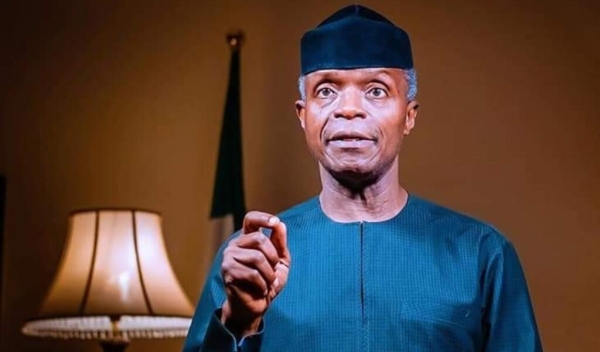Former Vice-President Yemi Osinbajo says political action for social change in developing countries must go beyond protests.
Osinbajo spoke on Thursday during the technology, new media, citizens and governance conference, which took place in Gbagada, Lagos.
The conference, with the theme: ‘Technology: The Present and Future of Political Action in Africa’, was organised by Enough is Enough (EiE) in partnership with BudgIT.
In his keynote address titled: ‘Technology as a Catalyst for Political Action in Africa’, Osinbajo underlined how young Africans deployed social media to organise protests in Nigeria, Kenya, and Zambia.
Osinbajo said it is important for social media platforms to regulate themselves, as any government-imposed regulation could be seen as an attempt to suppress free speech.
“Social media is really empowering for all and it is non-discriminatory — the weak, the strong, the treacherous, the mischievous and haters of every kind — have cover to speak their minds, speak truth to power, and insult,” he said.
“I think it is a critical medium but we must find ways of self regulation. In developing countries with fragile economies and widespread poverty, we don’t have the luxury of political action for its own sake.
“There is a sense of power and excitement that comes with protest. Political action must go beyond protests and the euphoria that it brings.
“It must lead to some measurable and tangible results otherwise it becomes counter-productive.
“In poor societies, every day of protest is valuable. It means that millions of informal workers and traders make a huge sacrifice because they earn on a daily basis.
“Political action must lead somewhere. It must move a step closer to resolving the issue that cripples our society.”
‘POLITICAL POWER NECESSARY FOR LASTING CHANGE’
Osinbajo added that political participation is necessary for the kind of holistic change required in developing societies.
The former vice-president said meaningful change cannot be achieved if the popular notion of “don’t get your hands dirty in politics” is maintained.
“In a democratic society where the objective of political action is to make substantial and structural change, this may only be possible within the context of partisan politics,” he said.
“I’m sure there are many people who may not agree with that. Yes, we can be effective as pressure groups and some level of change is possible by advocacy action.
“But the truth is that for the depth of change that is required in developing countries, political power is required.
“The puritan stance of the elite, which of course includes those in the civil societies, is that we should not get our hands dirty in politics. This will not achieve change at a scale in any important area of concern.
“If we take the position of don’t get your hands dirty or don’t get into politics, we can’t achieve change at the scale that is required, especially in our society.”
Osinbajo added that he was able to carry out far-reaching reforms in the justice system after his appointment as attorney-general of Lagos in 1999.
He said before the Alliance for Democracy (AD) won the 1999 election in Lagos, he made little progress in his clamour for justice reforms as a university lecturer.


